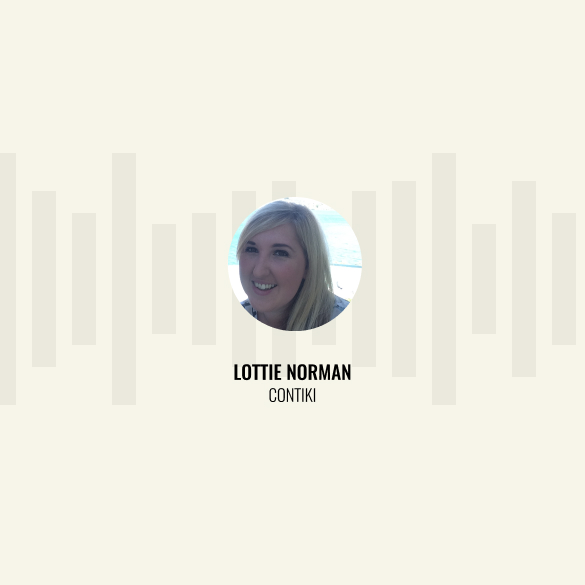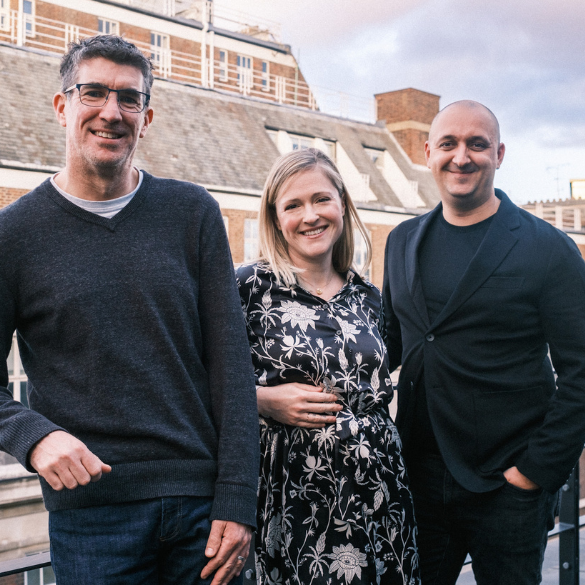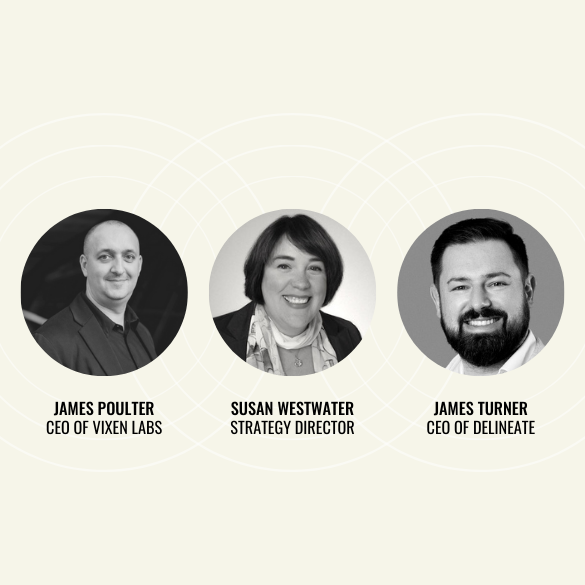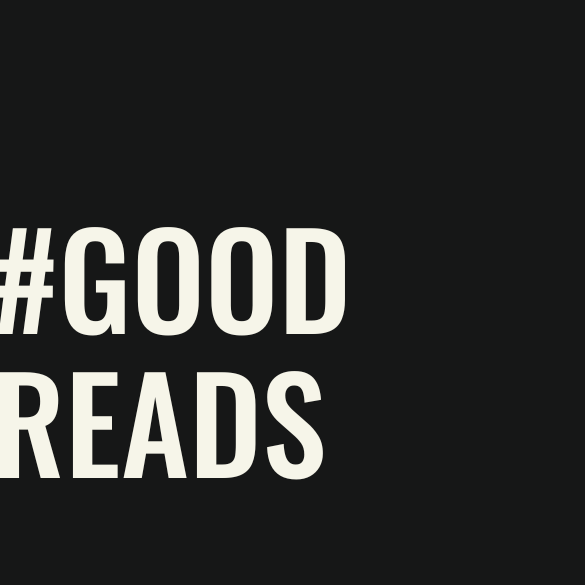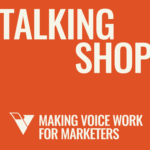
Listen to Talking Shop Episode 5
Listen to Episode 5 of Talking Shop: Making Voice Work for Marketers right here. Talking Shop is a brand new podcast series from Vixen Labs, taking you through the core findings and insights from the Voice Consumer Index 2021.
While the industry took a hit like no other in the COVID-19 era, companies like Contiki found new ways to engage with their customers. They kept the travel spark alive through podcasts, provided support with skills like Pack My Bags, and are looking at how voice can improve customer experience in a post-pandemic world. Find out more straight from their Content Marketing Director, Lottie Norman.
Or read the transcript
James Poulter 00:00
Well, this week on Talking Shop, we are talking about travel, probably one of the sectors that has been the most disrupted, the most fraught in recent months, and certainly over the past 18 months. For some of us, we’ve not gotten on planes, trains or automobiles for a very long time. But as the world begins to open up, we’re using our voices more and more to find out where we can travel, how we can travel, and where we should go. And that is now what we’re going to talk about here on this week’s episode of Talking Shop.
James Poulter 00:28
And I’m very excited to have one of the Vixen clients here, Lottie Norman from Contiki Travel and she’s going to introduce herself now in just a minute. But just to bring you the context here, we’ve worked with Contiki now for a few weeks getting them sorted on a new skill project that they’ve had out in the past. And it’s exciting to see where they’re going in the future in voice and…innovative travel company, one that has been doing a lot in the world of content marketing, and really has its finger on the pulse of what people are looking for, in terms of where to travel to, and particularly what type of experiences customers are looking for. So Lottie, welcome to Talking Shop, why don’t you just tell us a little bit about who you are? And how you ended up doing the job you do now?
Lottie Norman 01:04
Yeah, sure. Hi, James. So yeah, I’m Lottie Norman, and I’m the Content Marketing Director at Contiki. So Contiki is a travel company for 18 to 35-year-olds, and we’ve been around since 1962. So we’re very much a heritage brand. Very well known in Australia, less so in the UK. And the US is very much a growth market at the moment. And so everything we’re doing is very much focused on: how do we reach and talk to young people? Where are they? What do they want to know? And how do they want to have travel experiences in today’s climate. And obviously, that’s just been accelerated with the pandemic.
Lottie Norman 01:43
But you know, everything we’re doing is very much trying to be at that cutting edge of technology, being where they are. A little bit about myself: I spent many years working in agencies, and very much in the social and innovation space, looking at sort of new ways to talk to people and reach people, very much specialised in travel, working on Qantas and Expedia and other travel companies like that. And then yeah, jumped at the chance four years ago to move to Contiki, and have the challenge of, you know, focus very much on Gen Z and millennial audiences, and you know, being very targeted in what we do, and obviously, that brings so much opportunity to do cool things, which is what Contiki’s about.
James Poulter 02:23
Well, and you mentioned there in your intro that, yeah, the businesses obviously had that kind of radical change in the past couple of years. I mean, you’ve been there for three years, two of those have basically been spent under…life under the pandemic. So, as we’re emerging from that time, and as I said, travel, it’s one of the most disrupted industries we’ve seen during COVID…obviously now, just this week, as we record here in the UK, travel restrictions are lifting and changing yet again, the amber, red and green list countries are being scrapped in favour of a ‘Go/No go’ kind of policy. How are you guys thinking about educating that audience facing certifiers about where they can travel to and how they can get about, like, what some of the challenges that you guys are facing as we actually go back to people being able to travel not just being stuck where they are?
Lottie Norman 03:08
Yeah, it is a challenge, too, and so much is guided by government restrictions and things which are totally out of our control. I think, from a marketing and sort of communications perspective, our position is very much being new. We want to be the trusted adviser, we want to be the place. There’s so much information out there, I recently came back from a trip to Greece myself, and just trying to work out what I have to do, where…and I work for a travel company…was a minefield. So you know, trying to be that trusted adviser, trying to simplify all the communications, we also work quite closely with the governments and the airlines and people like that.
Lottie Norman 03:45
So yeah, that’s very much our position. And what we’ve seen from our audience is, they just really want someone to hold their hand through this. They want to travel, they’ve got pent up adventure, sort of, you know, they’ve missed out on birthdays, and graduations. And, you know, all these great things which they can take is very much a rite of passage for young people. And so, you know, there are a lot of lost opportunities and missed moments. So our position very much is how do we understand what they need to know, what their concerns are, what their questions are, and basically address that through content and free communications, and really be that kind of trusted adviser in the space and give them security.
Lottie Norman 04:26
And I think for us, we’re in a very fortunate position where our brand has very much been group travel company, is very much about taking…being hassle-free travel, and doing it for you. And I think that just gives us that edge a little bit. But ultimately, that’s just what we’re seeing everyone wants is, you know, they want to know that, if something happens, they can get their money back. They want to know what happens in terms of: do they have to be vaccinated to go, what are the different country restrictions, and just really have someone who understands that space more than anything?
James Poulter 04:59
Well, one of the things that happened during the pandemic, because not many people have been confused about where they can go and what they can do. But because we’ve all been at home, the explosion, really of digital channels, and particularly the depth of reliance upon those has grown exponentially, right? And that’s not just in voice, as we’re obviously concerned about here, but also in other forms of content…in social, we’re seeing, you know, TikTok, Instagram, Twitter, these are all changing their methods of how they connect with often those younger audiences.
James Poulter 05:24
How are you guys thinking about what channels are the right places now to connect with these, you know, often kind of late Gen Z, you know, kind of the…or the early or late millennials, I don’t quite know, I feel like I’m a mid…middle-life millennial now. So it’s like, whichever of these audiences, what channels? Are you actually thinking about all the places to really connect with them? Because there’s been so much fragmentation?
Lottie Norman 05:46
Yeah, it’s a good question. Um, so we historically very much focused on, you know, from a social perspective, it’s very much been Instagram, that’s been the sort of the inspiration platform, particularly for travel content in general, we’re also very fortunate that we have our own editorial platform. And that’s been, you know, a great way of doing deeper storytelling, involving influences, involving content creators and sort of doing a bit more sort of immersive experiences.
“BUT A FEW YEARS AGO, WE MOVED INTO PODCASTING. AND, YOU KNOW, WHAT WE FOUND IS, IT WAS A GREAT WAY OF TELLING STORIES, BUT NOT BEING TOO INTRUSIVE.”
So people sort of opted in a lot more. And we became part of people’s everyday lives, of people listening on the train, people, you know, listening by the swimming pool, wherever it may be.
Lottie Norman 06:31
So, you know, that’s kind of our approach at the moment is the sort of less intrusive channels and, and also, the reality of social being so much as sort of guided by the algorithms and a pay-to-play environment. You know, we don’t have, we haven’t been able to operate many trips in the last two years, you know, we’re slowly getting there, but our paid media budgets, you know, are a fraction of what they were a few years ago. So it’s just not really feasible to be relying on broadcast messaging and broadcast media for us at the moment.
Lottie Norman 07:00
So it really is like a content-led approach. And it starts with just truly understanding where our audience is and what they want as well. I think second to that, you know, TikTok has been huge for us. We know that’s where our audience is. But, you know, interesting conversations happening of, like, what is the role of a brand in that space? You know, what is our role? And I think, you know, one thing we’ve done, we’ve done lots of sentiment surveys and studies with our audience and questionnaires, and all sorts, and I think, you know, ultimately, young people at the moment want to have some fun.
Lottie Norman 07:33
They want to get back out there, they want to have this real world connection again, yeah, everything’s been through second screens. And this, this desperate need for connectivity. And just to experience things again, you know. We did a study recently, and it came out about…sounds and smells were the biggest things people were missing about travel. And it is that sort of, you know, the difference, getting off an aeroplane when it’s very hot, and that human smell and that feeling. And that moment of, you know, getting back and sharing memories, with then having new friends. And it really is like, it’s not a marketing sales ploy. It’s, like, truly what people want.
James Poulter 08:10
Yeah, so that’s that smell of sand in the heat, the taste of suncream running in your face, it’s kind of what people want.
Lottie Norman 08:16
Exactly. And you know, you know, the sangria going over the ice cubes. And it really is those moments. And I think, you know, what we’ve been focused on as a brand as well is: how do we remind people of how good travel is, and, you know, get people to just get out there and start exploring the world again, because there is a nervousness. And there is, you know, a reluctance and, particularly for our audience, so the past two years have kind of really been a struggle.
Lottie Norman 08:46
You know, they’ve had to do university degrees through Zoom and Hangouts, and they haven’t had those same connections and community moments. So you know, for TikTok and for the channels, and turn it back into that, it’s about any channel where we can showcase how fun travel is and that’s where TikTok has been great. The podcast has been great. And of course, now voice is another one, which is, you know, it’s…we know what people are searching for. So, how do we bring that to life through different content streams?
James Poulter 09:14
I want to come to the voice and search piece in a minute, but let’s just stick to the podcast. As you mentioned, really interesting that you guys ran the show during the summer months called ‘Out of Office, Unusual Circumstances’, kind of looking at the impact that the pandemic has had and thinking about kind of the changing…kind of lifestyles that many of those young people are going to go through. It’s been a really interesting show to look at. You’ve looked at things like the future of work, the female revolution in India, some really kind of fascinating topics. Why was it important to kind of bring those human stories to life in an audio medium like that? What difference does that make compared to, yeah, just putting it out on TikTok, or putting out a series of tweets?
Lottie Norman 09:52
Yeah, I mean, we’re very fortunate that, number one: the green lends itself to storytelling so well, and also, as a brand, you know, we’re very big on sustainability, we have great experiences where, to the point of the India empowerment, you know, we work with, you know, providers who have a story to tell.
Lottie Norman 10:14
So, we had such a lot of great stories and very human stories which will bring to life the benefits of travel and the education around travel. So we had these living in editorial format. And editorially, they’re very strong. But what we were seeing is, you know, with more and more people looking for podcasts, they were looking for…they didn’t want, you know, a travel podcast, which was just gonna talk about where we go on what you can do and do this with Contiki.
James Poulter 10:39
Pretty depressing when you can’t go anywhere, right, as well.
James Poulter 10:42
Yeah, when we actually launched Out of Office before the pandemic — so, we did the first series where ultimately we just decided to test the ground, see sort of what appetite was. And we started just turning some of our best performing editorial pieces into podcast ultimately. And we’ve got lots of ambassadors and friends to the brands who have gone on, who have travelled with us, who have then gone on and become, you know, musicians or content creators or influencers in their own right. So, we just reached out to our network and just thought, you know, let’s just have a chat about the power of travel. And just interesting topics, things which are just great stories. So it was never a sale, it was very much top funnel just to, you know, have some fun and enjoy sort of telling stories.
Lottie Norman 11:25
And then, when the pandemic hit and more and more people were, again, turning the podcast, so, we felt like it was a great opportunity to…again, the stories and the issues which were affecting our audience around things like dating, how do you date now and, you know, work, and how that has changed the work-life balance. And we’ve got some influencers in our network who had become content creators, who suddenly for the first time ever, they cannot travel. So that was their livelihood. So we thought that was a really nice angle to start telling some of these stories and to do a kind of bonus edition, which we called unusual circumstances.
James Poulter 12:04
And, you know, the vision for us is very much just to keep telling these stories in free voice through podcasts, it means we can really get into people’s psyches a bit more, we can really start to have a meaningful connection with them. And it enables us to kind of really grow that community feel around our stories, whereas editorials are quite one dimensional. We don’t know much about someone once they, you know, their feelings, their emotions, once they’ve left that piece of content. Whereas podcasts, like, they keep coming back, we get the comments across social media, the comments across the different providers and, you know, we feel we get lots of requests — can I; I’ve got great stories to tell; I went on Contiki, it changed my life, and things like that. So you know, it really gives us a platform to have a community conversation.
James Poulter 12:48
And you used that word: conversation. I think it’s important to kind of talk about some of the other things you’re doing in the, I suppose, in the overall mix, you mentioned it’s that kind of top of the funnel awareness opportunity, and we see this from the research that we’ve done in the Voice Consumer Index this year that, though that’s the thing that…where there’s a huge opportunity, right, to capture attention through content, but further down that funnel, you guys are doing a lot in the world of conversation: you’ve got live chat on the website, you’ve got 24 hour support, you know, kind of which not every travel brand provides .
James Poulter 13:15
How are you learning from customers in that scenario, like what types of things have emerged over the past few months that are things that you maybe wouldn’t have learned if it wasn’t for having these live chat channels, which I know isn’t powered by a chatbot, it’s real people, or you know, through the customer support lines or even through voice and search? Just tell us a little bit about some of the things you’ve learned about what people are looking for.
Lottie Norman 13:34
It’s a really good call out because it pretty much is central to every part of the business. And I guess it’s never been as important as it is as we emerge post-pandemic. And so you know, we get a lot of insight from our live chat and from our conversations and our call centres. Also we get a lot of insight from our social posts, social comments, and DMs, and all that stuff. But you know, we’ve learned things, we’ve pivoted our product accordingly. So, you know, we’ve seen lots of…we’ve seen lots of people asking for shorter trips, you know, just want to do something short just to get away, so we launched our digital product, which is yes, smaller, immersive, skills based.
Lottie Norman 14:15
We’ve also seen a lot of people asking about accommodation, you know, they want to know where they’re staying and they want something which is going to be quite wow so then you know we’ve taken that to some of our new partners and we partnered with the likes of Selina and generator hostels and you know, it’s it’s enabled us to kind of have a finger on the pulse of what young people want from travel experiences now. A few other things, you know, we recently did, when the Met Gala and everyone was creating memes, we created our own of Kim Kardashian’s, you know, outfit and talks about sort of, when you realise that you’re sort of aged out of Contiki because of the pandemic and that was a really interesting one. It was, you know, quite a flippant social engagement post, but the comments, when you read them, I think we had sort of about 3000-4000 comments across different channels.
Lottie Norman 15:06
And everyone’s talking about, you know, there needs to be Contiki for people who are in their sort of late 30s, ‘if I had a chance to just doing one more Contiki’, so you know, we’re looking at opportunities there. What do we do for people who have aged out during the pandemic, do we offer something special to…we do a sort of, you know, a Contiki Plus Exclusive or, you know, different things. And, you know, it’s just testament, I guess, to our community, and really inspiring what we do as a business.
Lottie Norman 15:37
And, you know, it does go across, you know, inside chat, and on the chat bots, and all of this stuff, and our call centres, and we really start to understand exactly what they’re doing and what they want from travel experiences. So, another one we recently introduced was, wait, historically, we have done coach travel, that is kind of the bread and butter of Contiki. But we’ve seen lots of people, you know, asking about interrailing, and asking about trains and other forms of transport. And so you know, a couple of years ago, we launched different train itineraries as well. So it takes out the coach aspect. And that, again, that insight came from our community and came from our call centres and what people were saying they wanted.
James Poulter 16:20
It’s not just new products that you guys have been developing, but also new services and utilities and things which kind of brings us now into the voice space. So one of the skills that you guys launched for Alexa a couple of years back was Contiki’s ‘Pack My Bags’, which was a kind of backpacking utility. We’re now working with you guys to rebuild something new and exciting, which I’m not going to give away right now. But you know, tell us a little bit about why you first entered into that voice market? And what, again, what have you learned about the way in which consumers want to connect with brands like Contiki through voice? How does it differ from maybe the other types of digital channels that you guys use?
Lottie Norman 16:53
“WE ENTERED INTO THE SKILL WORLD BASED ON AN INSIGHT THAT SOME OF OUR BEST PERFORMING CONTENT ACROSS OUR EDITORIAL PLATFORM WAS ‘WHAT DO I PACK?'”
And still today, you know, six years on the best performer has been like, ‘what adapter do i need for different places home?’ And I think we all sort of get there when you come to packing. Like, ‘is it the US one?’ It is that utility content, which we know. So it is much more? How do we nurture people who have booked a Contiki? How do we start to engage them and get them talking and getting them excited about their upcoming trip?
Lottie Norman 17:28
So, we kind of thought then: hang on, this content lends itself so well to voice and it’s then, you know, you can imagine someone packing their bags and asking the skill, sort of what do I take and, you know, it also gave us a way of kind of having a bit of a relationship and injecting some fun and our fun tone of voice into something, which is very utility base. So yeah, we started thinking about it in that aspect, and it was very one dimensional, it was…we, you know, would just bring to life, some of our packing guides will push it out through some paid media, so everyone knows it’s there, it’s a shiny new tool, no one else in the travel industry is really doing too much.
Lottie Norman 18:08
So, you know, we can get a little bit of brand fame that we’re doing this, it’s something cool young people can sort of have a play around with, and that’s kind of where our initial thought sort of stopped, I guess. But then what we’ve seen is, you know, we’ve been talking to different tourist boards about this, and everyone’s quite excited by this new world of voice and, and how we can start to engage and use it more for top of our higher up funnel activation, and start to inspire people about travel destinations. And I think the biggest thing we’ve seen is, when people use the packing guide, there is… so nine times out of ten, have booked a Contiki and they’re using it that way because you know they’re doing it to help prepare and understand
James Poulter 18:50
It’s kind of part of their journey experience in a way.
Lottie Norman 18:52
Exactly and understand what they need and, you know, we’ve used it as a nice angle to try and get in some of our sustainable products, and some of them do a little bit of education around the types of experiences you will be doing on these trips. But there is a huge opportunity for us to actually be a little bit more fact driven and use it to really educate people on different destinations and, and sort of really start to inject the uniqueness of different places and excite them. And then, you know, the places which you can only go without a brand. So I think there is a huge opportunity for the travel industry in general to start using voice in more of a sort of inspirational way.
James Poulter 19:32
And maybe in more places as well, right, not just necessarily in smart speakers, because I think that’s one of the things that’s really interesting for the market, that you guys tap into 18 to 24-year-olds, the highest usage of things like Siri and Google Assistant on their phones, not just on smart speakers. And you know they’re using that a lot for search and you mentioned this earlier on…is that your search is kind of the name of the game when it comes to travel, right, is the first place that we start when you’re down the pub and someone’s saying to you, ‘where are you going on holiday this year?’, and the next thing you’re doing is, you know, searching Google for answers. Where does search factor in this kind of voice journey? You, guys, tell us a little bit about what you’re learning from that as well.
Lottie Norman 20:09
Yeah, so search was kind of the inspiration around starting this journey, to be honest, with voice. You know, travel lends itself, as you say, so well to search, but also things such as image search. You know, someone mentioned they’ve stayed at, you know, a slightly less well known part of New Zealand, the first thing you do is you do a Google image search, and you want to see what it looks like, you want to see, is it something you then want to read more articles about or start to explore a bit more? So, you know, we see that across our site, we see that through Google Search insights, as well.
Lottie Norman 20:43
You know, we’ve seen the searches for Contiki increase recently on the back of different borders opening and travel restrictions lifting. And so, yeah, I think that is so critical to everything we’re doing, it informs our social content, it informs what products we start pushing out, you know, more tactical sales messaging as well, and ultimately informs kind of where we should be focusing our efforts from a marketing perspective and a business perspective, as well.
Lottie Norman 21:09
So, to be honest, with us, given our audience is just you know, digital, first they’re searching, whether it’s through voice, whether it’s through Google, whatever it may be, they you know, they are asking questions and they want to know answers. And that’s kind of our job…is to interject that and create content and pivot the product to serve needs…to be around what people are wanting. So yeah, I mean, search literally runs through everything we do. And we’re very much, I’d say, it’s…so a search-first business.
James Poulter 21:37
That’s quite a sophisticated approach to actually be really thinking about the product adaptation as well and then selling the right thing through. I suppose the interesting thing with that is it creates an expectation with customers that you are there through that whole journey and one of the areas that must have been severely impacted is customer service. You know, obviously, at the start the pandemic, things being locked down, mass cancellations, people really struggling to know what they can do, credits from airlines, you know, the list we all know we’ve all experienced that the list goes on, of just how much disruption it is.
James Poulter 22:09
I’m sat on a lot of big vouchers right now and I’m hoping that my COVID tests are gonna be ready for flight in a couple of weeks time. Tell us just a little bit about what you guys have experienced and how you’ve had to level up and maybe shift with COVID when it comes to customer service. Has it had a real impact on the channels that you use and the way in which you help people through that journey?
Lottie Norman 22:27
Yeah, I think the biggest thing for us again, it comes down to sort of our core demographic and audience and you know, it’s instinctive of them to go straight to social, that’s where they want their answers. So you know, we had to pick out a lot of our…some of our more opening brands still, you know, it’s a traditional call centre kind of approach, whereas, for Contiki, it is looking at technology and how technology can enable us to be quick and give more instantaneous responses and really help guide people through the whole process. Like, we know it’s a challenge we’ve all experienced it ourselves, but, you know, we did things like our live chat now is integrated with our Facebook Messenger. So when anyone messages us, instead of getting a bot response, they go straight through to a live chat, which is an actual human 24/7, who can answer their questions and really guide them, you know.
Lottie Norman 23:18
Young people that don’t really want to pick up the phone, they want to do it through Instant Messenger, they want to be able to just get their response and say what they want to do. The other thing we’ve done and we’ve had to pivot to is integration of WhatsApp as well, just providing another opportunity for sort of instantaneous contact with us.
Lottie Norman 23:37
And I think, you know, we’ve all seen that with brands where you send a complaint or you ask the question and you don’t hear back for a week and it doesn’t…particularly in the travel industry with so many brands sadly, you know, having to cease trading and things you know, we’ve seen it with STA and we’ve seen it with a few others such as Flash Pack and, you know, I think that confidence with our audience is so critical that you know, we’re still here, we’re still trading, we’re riding the storm with you, you know your credits are safe as soon as we can get back out there, we will and that’s very much been our positioning across content as well, with a whole stream dedicated to kind of back on the road and really putting that confidence and I think, you know, that has started very much with that customer service lead being present, being there and being able to respond if sometimes the responses aren’t always what people want, but at the same time at least they’re hearing back from us.
James Poulter 24:34
You mentioned Facebook Messenger, you mentioned, you know, obviously WhatsApp integration. So these conversational channels…and obviously relies also on things like Instagram massively in terms of the content side. As we record this this past week, I couldn’t talk to you without asking you this…about this question of…we had…we kind of found ourselves in an unknown world where all of these channels were off for six hours. Now, you know, how much long term consequential damage I think that makes our brand is yet to be seen, but the question that has come out of the Facebook outage that we experienced last week and, yes, okay, someone messed up a DNS record, it happened.
James Poulter 25:08
But when you think about the reliance upon some of these big social channels to provide some of that customer service, does that bring you any pause for thought, or any concern about: are we becoming too reliant upon these big outsource places and AI? Whereas on the website, for example, you’ve got your own chat, and you are relying upon bots, you’re doing it yourselves? How does the brand think about that? And not not not just in the wake of the past week’s events? But more broadly, we see a lot of brands moving towards things like customer assistance and owning their own tech stack. And yeah, kind of owning that across all the channels, whether that’s the app or the website, where does that factor into Contiki’s thinking right now, particularly in the light of what’s just happened?
Lottie Norman 25:50
Yeah, I mean, Monday was a crazy day for everyone involved. I think, you know, from our side, we’re not reliant on one channel. And that’s the key thing for us is, it didn’t really impact us. Because, you know, we do have the live chat on the website, we still have, you can still pick up the phone and call Contiki. And I think, you know, we’ve still got email. And, you know, our approach, I guess, to a lot of these, and we’ve seen it in recent years, where we used to spend quite heavily on sort of social platforms.
Lottie Norman 26:21
And, you know, it was very much at their mercy, you never truly own that audience. And you’re very much at the mercy of, kind of the tech giants and the algorithms and everything else. And obviously, they still play a huge role in kind of our everyday comms, because it’s where our audience is, but we’re definitely focused very much on trying to own more of an audience. So we’re fortunate we launched our editorial platform, sort of six years ago, we do more there, it has email attached to it, it’s much more kind of our own community outside the social, obviously, we use social still to drive people there.
Lottie Norman 26:56
But I think, you know, we’re definitely very conscious. As you know, we’ve seen over the years, the different channels we’ve spent on and then different things changing and adoption trends changing. A good example for us was about sort of five years ago, maybe longer, and we were very much focused on YouTube, we were sort of big players in a world of YouTube, we used to go to lots of events, we won lots of awards, we launched a series called ‘The Road Trip’, which was pretty revolutionary at the time, taking sort of micro influencers who, you know, some of them have gone on to become like big musicians, Grammy Award — Troye Sivan — and, you know, taking them on trips, having them daily vlog, doing competitions, and we invested a lot of energy into YouTube. And then sort of about three years after that everything was about Native Facebook video.
Lottie Norman 27:45
And it’s, you know, our entire strategy had to pivot and then, now we’re back to YouTube again, and I think it was, that was a real eye opener for us of investing too much in one channel, and literally putting all your eggs in one basket, and I think definitely a move to trying to own our audience in other ways. And I think, you know, that’s where the podcast has played a really strong role for us as well. You know, we’ve got these great stories, how do we bring them to life across all channels, as opposed to being you know, an Instagram-first brand, I’m just focusing, and that’s kind of been the same with TikTok and its emergence. You know, it is a big channel for us, it’s where our audience is. But we don’t want to just pivot all our energy into TikTok now, because who knows where we’ll be?
James Poulter 28:27
Well, we’ve looked back, maybe as we come in to land here — sorry, the pun — let’s look forward. Yeah, we’re seeing innovations happening in the voice space, in particular, in travel, outside of just skills. We mentioned custom owned assistants, we’ve seen just this past couple of weeks, Disney launching their own ‘Hey, Disney’ assistant on the Alexa platform, we’ve seen people like Merlin integrating, you know, kind of new devices into hotel — LEGOLAND and places like that. As you look forward into the travel sector, where do you see the opportunity that voice might begin to emerge over the coming couple of years? Are there any things that you’re particularly excited about?
Lottie Norman 28:59
Yeah, I think what really excites me is, you know, the role it plays in booking as well. So I think no one’s really looked at that kind of conversion piece. I know, sort of Eurostar have touched on it and started to do things but, you know, the ease of being able to book through voice and you know, it’s a tricky one because we’re not talking about a low, you know, priced item. And it is quite an immersive experience. But being able to be guided through that booking journey of you know, what type of experience you want, what type of room do you want, how do you want to travel, what type of seat do you want, and being able to sort of do that and just have a very clean cut, direct approach, I think is quite exciting.
Lottie Norman 29:41
I don’t think anyone’s really done that yet. It’s something we’re looking at a little bit of, you know, can we start to capture maybe deposits through voice and just those that are a little bit more instantaneous when you know that you’ve been inspired to travel and you can do something quite quickly. And then again, I think you know, in the inspiration space I think there’s huge opportunity for young travel brands as well as tourism boards as well to really own it and utilise it from an education perspective of, you know, what you can do in those destinations. But also, you know, more of the unearthing and discovery.
“THAT’S THE GREAT THING ABOUT VOICE, IT DOES TAKE YOU ON A JOURNEY, WHICH LENDS ITSELF SO WELL TO TRAVEL.”
You know, it might be fun. But yeah, I think it does really sort of lend itself so naturally, that it’s a good opportunity to start trying to educate consumers using voice with different things and information. And, you know, just getting excited about travel again, and different destinations.
James Poulter 30:41
Yeah, I mean, the data supports it in our own study this year. In the Voice Consumer Index, we found that the most likely thing people are going to do with their voice is: search for best travel prices, check hotel reviews in a city, compare the difference between two or more flights or, or research flight or travel information. So that kind of research and that destination kind of finding seems to be the thing that people are really leaning into. So you think we’re gonna see more of that kind of coming about? The question then is, where’s that going to come from? Is that going to come from the travel operators like yourselves? Is it going to come from the comparison sites? It doesn’t need to be kind of initiated by the airlines and the hotel groups? Where do you think there’s most likely we’re gonna see that movement?
Lottie Norman 31:22
I think it initially will kick off with the hotel groups and the flight groups thing as they start to see the opportunity of that instantaneous booking. And you know, how sort of cost efficient it is, I think that’s where it will start. And then I think it will become the role of the tourism boards and sort of the tour operators like ourselves to do more of that top funnel inspiration piece. But yeah,
“I DO ENVISAGE THAT WE’LL START TO SEE AIRLINES ADOPTING VOICE MORE READILY…”
…in the coming sort of months, probably as things start to, you know, ramp up again, because, you know, already we’re seeing sort of demand for flights in is increasing, and, you know, competition for flight prices, and everything is just going to go through the roof as people are sort of desperate to escape wherever they are.
James Poulter 32:08
Well, yeah, and obviously, most people’s 2020-2021 innovation budgets kind of got parked and redirected into still innovation, but innovating around COVID experience rather than doing anything to really kind of help push people forward. So we’re excited to see where that goes as well. Let’s see, if people want to find out more about you or more about Contiki, where can they go on the web to do that?
Lottie Norman 32:27
Just head to www.contiki.com. And, if you have any questions, feel free to hit me up on LinkedIn.
James Poulter 32:35
Excellent. Well, Lottie, thank you so much for joining us on this week’s episode of Talking Shop. Lottie Norman from Contiki Travel, Director of Content and Marketing. And we’re very excited to have you and looking forward to seeing the next version of the packing bags skill which we’ll be sharing more about when the time comes. But for now, thanks so much for joining us this week on this episode of the show, and wish you well and hopefully many happy flights soon.
Lottie Norman 32:58
Likewise. Thanks, James.

